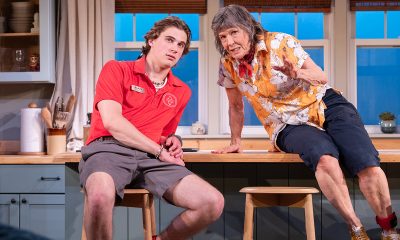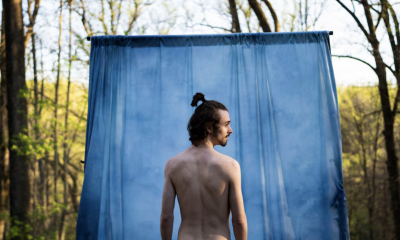Arts & Entertainment
Opera siren
Lesbian soprano Patricia Racette on ‘Tosca,’ being out and her life off the stage

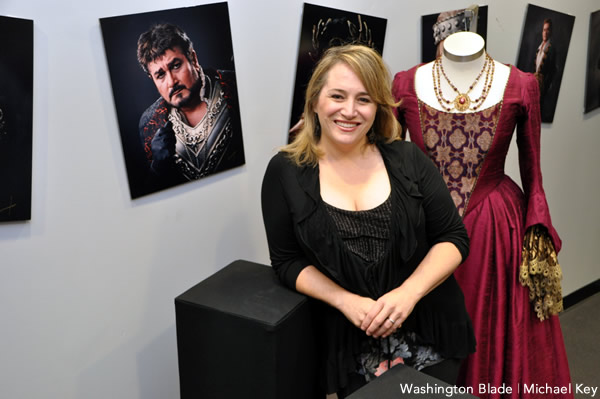
‘Tosca’ lead Patricia Racette at Washington National Opera’s rehearsal space in a Takoma Park warehouse. (Washington Blade photo by Michael Key)
Hardcore opera fans may quibble at the repetition, but hang around D.C. long enough and there’s a chance to see just about any standard-canon opera you can think of. Washington National Opera, now not-so-strange bedfellows with the Kennedy Center, kicked off its fall season last weekend with the Puccini warhorse “Tosca” with lesbian Patricia Racette in the title role.
Racette, who lives with her partner (mezzo soprano Beth Clayton) in Santa Fe, is hunkered down for the day at the Opera’s mammoth rehearsal/storage space in Takoma Park a few Mondays ago. Though dressed casually, she’s made up and coiffed as some of her afternoon press rounds are on camera.
Down several long hallways and through a giant costume room that looks like it could dress the entire cast of “Ben-Hur” and then some, Racette settles into a small and dingy library where CDs, VHS tapes and songbooks line the walls. During a 45-minute conversation, she riffs on her life off stage, the logistics of making it through live performance and why the stage, as opposed to the studio, is where she feels most alive musically.
Together for more than a decade and married since 2005, Racette says she and Clayton find a way to make their marriage work despite two busy careers that by necessity involve significant travel. Once several years ago they didn’t see each other for almost seven weeks.
“It was absolute torture,” Racette says. “Torture.”
Racette is developing a following in Washington. She was here in May for “Iphigenie en Tauride” (Gluck) after previous appearances in 2007 for “Jenufa” and 2009 as Ellen in “Peter Grimes,” all with WNO.
Though it half-heartedly reviewed the production, the Post called Racette’s “Tosca” performance “luminous” and “compelling” and praised her stamina and vocal authority in “Iphigenie.”
Racette calls singing opera akin to surfing.
“I mean it’s a fine art and it’s called a fine art for a very, very good reason because it takes a lot of study, a lot of concentration, a lot of precision and it’s ongoing. As long as you’re a singer, you’re tidying up and you’re working on these things. I don’t worry if I’m gonna hit the note, that’s not my thing. But you have to have everything in line and as fluid as possible because it’s true, once you get there, you’ve got that one chance and boom. It’s not like practicing when you say, “OK, out of those four tries, I hit it once. It’s like a very intricate, very involved surfing. You know you want to hit the wave as absolutely best you can. Do you hit it that way every time? Absolutely not, but you do the best you can. … I’ve seen other singers where they just didn’t get there and there’s a whole other level of mental angst with that but that’s not my typical issue.”
Do some singers channel a non-verbal signal to the audience that they might not hit the note, whether they know they will or not? Is it a way of contriving some suspense in the performance?
“I think some of it is milked,” she says, “but some of it is really real. When you come to the climax of “Vissi d’arte” (one of her “Tosca” arias), you’re taking your spring and jumping over the canyon, so you have to have all your faculties composed. It’s not something that just comes out, like la la la. It’s not but I think if you make it seem like that kind of moment, I think the audience feels almost robbed from the experience. I’ve been playing Judy Garland at Carnegie Hall and she hits this belty high note and it’s so exciting because she kind of falters for one second and there’s a part where she kind of misses it for a split second, but then regains it and that’s almost more interesting than perfection itself.”
It’s why Racette has almost zero interest in recording any of her signature roles.
“I did a little at the beginning of my career and I hated it. I’d rather have a root canal … To me that has nothing to do with music making or the art form. I want the audience’s energy, I don’t want to be there in that test tube of perfection. For me, it just took all the joy, all the magic out of it and I have no interest in it whatsoever.”
But what about legacy?
“You mean like in 50 years, Patricia who,” she says, with a hearty laugh.
Isn’t there a time and place to get it down just right?
“I guess so, but it’s not accurate. It never was accurate, it never will be accurate. That’s not the way we are. The excitement of live performance, both for the performer and the audience is that aspect, it’s live, it’s right now, you get that one chance at that note and, oh God, yes, that was fantastic, or ooh, ooh, that was a little bit off but, it involves the audience, it keeps them on that ride.”
Racette’s humble New Hampshire beginnings have been oft-noted. She calls her family and upbringing “not remotely” musical and “steeped in ignorance,” especially about opera. She grew up listening to Barbra Streisand and Donna Summer and as a self-taught guitarist started writing her own songs as “sort of a Joni Mitchell-type thing.”
She started taking a few voice lessons because she knew she’d need an audition tape for college. Though not classically steeped to any degree, she knew studying music in college would require exploring some of that. She envisioned either a guitar-and-clogs kind of singer/songwriter career or later, perhaps something jazzy like “a Manhattan Transfer-kind-of thing.”
Racette, now 46, calls her 18-year-old self, “Green — as green as they come.”
She cried for three days when her vocal teacher told her bread and butter would be in opera. Her raw vocal talent was just naturally best suited for it. She detested her salon piece (Handel’s “Oh Had I Jubal’s Lyre”) but sprawled out on her apartment floor listening to a record of Renata Scotto singing “Suor Angelica” ignited a passion within her. She laughs about it now.
“I had envisioned this rather simple, rather short sighted thing,” she says. “I didn’t know how to plan the life I have.”
In the operatic designations, Racette is a full, lyric soprano. She bristles slightly at too much emphasis on these categories as they can be confining. LGBT labels, though, don’t bother her at all.
“Oh, it’s very clear to me that I’m a lesbian,” she says. “I’m out and proud because the alternative is to be secretive and ashamed and I just can’t imagine behaving that way about the best thing in my life.”
Racette embraces her off-stage life and prides herself on wearing overalls, owning a toolbox and getting her hands dirty in construction projects, such as the Santa Fe house she and Clayton recently had finished.
“Oh are you kidding,” she says. “I’m on the roof and I’m checking things out, asking the questions. I’m very involved with that sort of thing. I’m very earthy in that way and very down to earth most of the time when I’m off the clock. No one can even imagine I do what I do. I’m never the leading lady then, I don’t have that hat on. It’s just not the sort of energy I have.”
And are lesbian opera divas anomalies?
“I think there are about 13 of us at last count,” she says. “But not all of them are out.”
And the men?
“Ehhh, it’s a pretty gay world,” she says.
She concludes her remarks with a knowing chuckle.
“A lot of the men singers are straight but yeah, most of my hair and makeup are my gays, which is as it should be I think.”
BOX INFO:
‘Tosca’
Washington National Opera at the Kennedy Center
2700 F Street, N.W.
Tonight, Sunday matinee, Tuesday, Thursday and Sept. 23-24 performances remain (Natalia Ushakova sings the lead Sept. 23)
In Italian with English subtitles
$55
202-467-4600 or kennedy-center.org
a&e features
Transmission DC breathes new life into a storied sound space
A fresh home for boundary-pushing culture on H Street

Late last year, phoenix-style, a fresh home for boundary-pushing culture arose on the H Street corridor. Transmission DC – a queer, trans, and POC-owned, operated, and centered community-focused venue – powered on in the former home to the Rock & Roll Hotel (famously, not a hotel, but very much rock & roll). Transmission (1353 H St., N.E.) arrives secure in its mandate – or even birthright – to provide a place to celebrate creativity and music through a lens of inclusivity and respect.
Transmission’s team brings experience, but also representation. Owners/partners Kabir Khanna (who is also programming director), Katii B, Ellie McDyre, and Kelli Kerrigan together previously managed 618 productions, a venue in Chinatown, crafting “some of D.C.’s freakiest parties, raves, and mosh pits” they note.
They packed up operations last fall to a space curated specifically for D.C.’s underground music and culture scene, building their efforts in Chinatown to bring in more fans in queer and POC circles.
Transmission, Khanna points out, is built on DIY values. In the music scene, DIY means that promoters and organizers – often disconnected from the mainstream and part of marginalized communities – build shows and programs collaboratively, but independently from institutions, supporting each other as smaller, independent venues close. Here, Transmission aims to ensure that those putting together these underground inclusive shows have a more permanent and stable home, can have access to resources, and can provide more sustainable income to artists. “We’re trying to get more people to support and enjoy the music, and also give artists and organizers within the DIY community more structure and a larger cut,” says Khanna.
Khanna also notes that Transmission operates “under the principles of safety, inclusivity, and respect.” McDyre added that even at venues that claim inclusivity, that statement might not take place in practice. We’re “not just pitting up a rainbow flag,” says McDyre, but as some of the owners are trans and POC, audiences can see themselves reflected at the top.
Much like the DIY nature of the music community, the Transmission owners brought a DIY ethos to turning around their space.
In March 2020 – the height of COVID lockdowns – Rock & Roll Hotel suddenly shuttered, though not due to the pandemic; instead, the venue claimed that decreasing sales and increasing competition led to the closure. For 14 years, it was the central spot for cheap beer and lesser-known and celebrated acts. The space stood vacant for more than five years, until Transmission turned the power back on.
“When we got into the space, it was effectively abandoned for years,” says Khanna. “There was a ton of mold, and paint primer covering all surfaces. It was nearly falling apart.” Khanna noted that many music venues like this one, regardless of how well it was maintained, “get the shit kicked out of it,” given the nature of shows. The team called in mold removal contractors, ripped up most of the floorboards, and started fresh.
Transmission’s first floor is styled as a stripped-down black box: the better to take in the music. “It’s minimal on purpose to act as a canvas for set design and music,” without a specific aesthetic, says Khanna. Moving upstairs, the second floor has been opened up, removing some walls, and now has a larger dance area than the first floor. Beyond the first two performance levels, and a holdover from Rock & Roll Hotel, is the rooftop. Though without a stage, the rooftop space is filled with murals splashed across the walls, with a full bar. Transmission’s current capacity is 496, but the team is looking to grow that number. Transmission will also leverage the full kitchen that Rock & Roll Hotel operated, bringing in Third Hand Kitchen to offer a variety of food, including vegan and vegetarian options.
Khanna pointed out an upcoming show reflective of Transmission’s inclusive ethos: Black Techo Matters on Feb. 27. The event is set to be “a dynamic, collaborative night of underground electronic music celebrating Black History Month.” Khanna says that techno came from Black music origins, and this event will celebrate this genesis with a host of artists, including DJ Stingray 313, Carlos Souffront, and Femanyst.
Movies
Moving doc ‘Come See Me’ is more than Oscar worthy
Poet Laureate Andrea Gibson, wife negotiate highs and lows of terminal illness

When Colorado Poet Laureate Andrea Gibson died from ovarian cancer in the summer of 2025, the news of their passing may have prompted an outpouring of grief from their thousands of followers on social media, but it was hardly a surprise.
That’s because Gibson – who had risen to both fame and acclaim in the early 2000s with intense live performances of their work that made them a “superstar” at Poetry Slam events – had been documenting their health journey on Instagram ever since receiving the diagnosis in 2021. During the process, they gained even more followers, who were drawn in by the reflections and explorations they shared in their daily posts. It was really a continuation, a natural evolution of their work, through which their personal life had always been laid bare, from the struggles with queer sexuality and gender they experienced in their youth to the messy relationships and painful breakups of their adult life; now, with precarious health prohibiting a return to the stage, they had found a new platform from which to express their inner experience, and their fans – not only the queer ones for whom their poetry and activism had become a touchstone, but the thousands more who came to know them through the deep shared humanity that exuded through their online presence – were there for it, every step of the way.
At the same time, and in that same spirit of sharing, there was another work in progress around Gibson: “Come See Me in the Good Light,” a film conceived by their friends Tig Notaro and Stef Willen and directed by seasoned documentarian Ryan White (“Ask Dr. Ruth”, “Good Night, Oppy”, “Pamela, a Love Story”), it was filmed throughout 2024, mostly at the Colorado home shared by Gibson and their wife, fellow poet Megan Falley, and debuted at the 2025 Sundance Film Festival before a release on Apple TV in November. Now, it’s nominated for an Academy Award.
Part life story, part career retrospective, and part chronicle of Gibson and Falley’s relationship as they negotiate the euphoric highs and heartbreaking lows of Gibson’s terminal illness together, it’s not a film to be approached without emotional courage; there’s a lot of pain to be vicariously endured, both emotional and physical, a lot of hopeful uplifts and a lot of crushing downfalls, a lot of spontaneous joy and a lot of sudden fear. There’s also a lot of love, which radiates not only from Gibson and Falley’s devotion and commitment to being there for each other, no matter what, but through the support and positivity they encounter from the extended community that surrounds them. From their circle of close friends, to the health care professionals that help them navigate the treatment and the difficult choices that go along with it, to the extended family represented by the community of fellow queer artists and poets who show up for Gibson when they make a triumphant return to the stage for a performance that everyone knows may well be their last, nobody treats this situation as a downer. Rather, it’s a cause to celebrate a remarkable life, to relish friendship and feelings, to simply be present and embrace the here and now together, as both witness and participant.
At the same time, White makes sure to use his film as a channel for Gibson’s artistry, expertly weaving a showcase for their poetic voice into the narrative of their survival. It becomes a vibrant testament to the raw power of their work, framing the poet as a seminal figure in a radical, feminist, genderqueer movement which gave voice to a generation seeking to break free from the constraints of a limited past and imagine a future beyond its boundaries. Even in a world where queer existence has become – yet again – increasingly perilous in the face of systemically-stoked bigotry and bullying, it’s a blend that stresses resilience and self-empowerment over tragedy and victimhood, and it’s more than enough to help us find the aforementioned emotional courage necessary to turn what is ultimately a meditation on dying into a validation of life.
That in itself is enough to make “Come See Me in the Good Light” worthy of Oscar gold, and more than enough to call it a significant piece of queer filmmaking – but there’s another level that distinguishes it even further.
In capturing Gibson and Falley as they face what most of us like to think of as an unimaginable future, White’s quietly profound movie puts its audience face-to-face with a situation that transcends all differences not only of sexuality or gender, but of race, age, or economic status as well. It confronts us with the inevitability few of us are willing to consider until we have to, the unhappy ending that is rendered certain by the joyful beginning, the inescapable conclusion that has the power to make the words “happily ever after” feel like a hollow promise. At the center of this loving portrait of a great American artist is a universal story of saying goodbye.
Yes, there is hope, and yes, good fortune often prevails – sometimes triumphantly – in the ongoing war against the cancer that has come to threaten the palpably genuine love this deeply-bonded couple has found together; but they (and we) know that, even in the best-case scenario, the end will surely come. All love stories, no matter how happy, are destined to end with loss and sorrow; it doesn’t matter that they are queer, or that their gender identities are not the same as ours – what this loving couple is going through, together, is a version of the same thing every loving couple lucky enough to hold each other for a lifetime must eventually face.
That they meet it head on, with such grace and mutual care, is the true gift of the movie.
Gibson lived long enough to see the film’s debut at Sundance, which adds a softening layer of comfort to the knowledge we have when watching it that they eventually lost the battle against their cancer; but even if they had not, what “Come See Me in the Good Light” shows us, and the unflinching candor with which it does so, delivers all the comfort we need.
Whether that’s enough to earn it an Oscar hardly matters, though considering the notable scarcity of queer and queer-themed movies in this year’s competition it might be our best shot at recognition.
Either way, it’s a moving and celebratory film statement with the power to connect us to our true humanity, and that speaks to a deeper experience of life than most movies will ever dare to do.
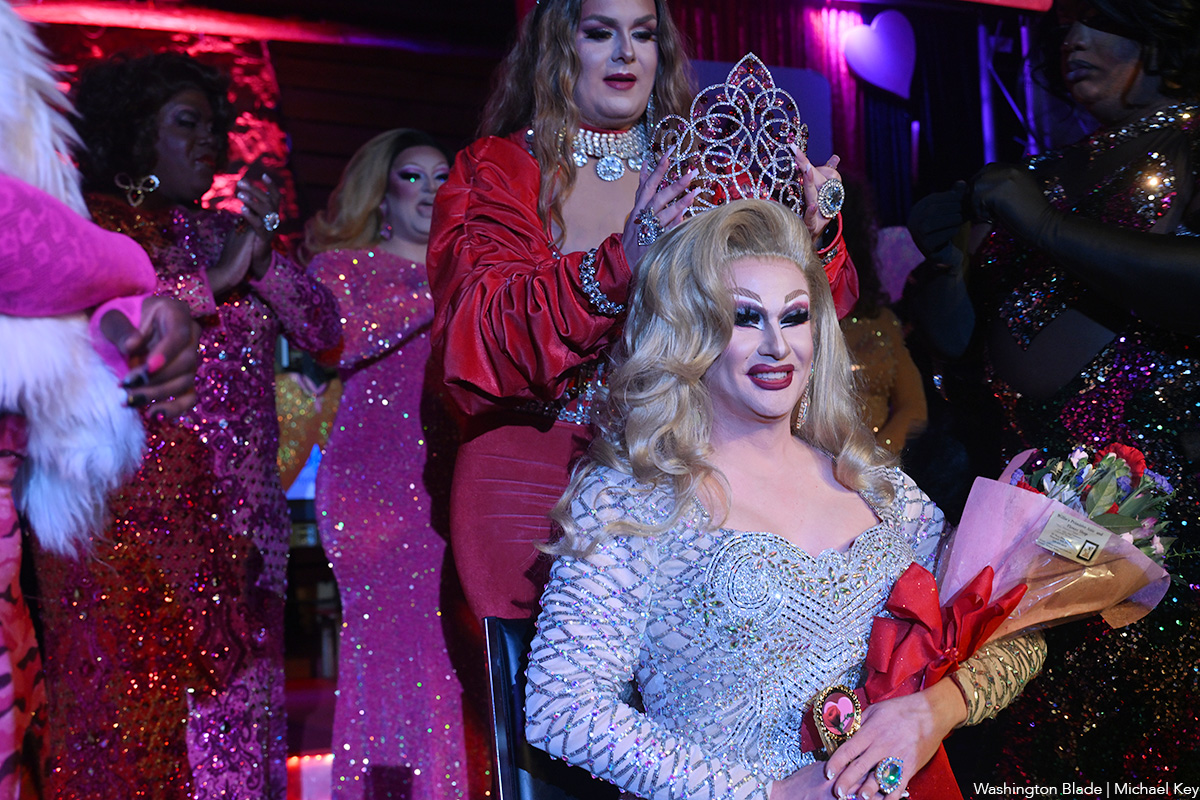
The 44th annual Queen of Hearts pageant was held at The Lodge in Boonsboro, Md. on Friday, Feb. 20. Six contestants vied for the title and Bev was crowned the winner.
(Washington Blade photos by Michael Key)
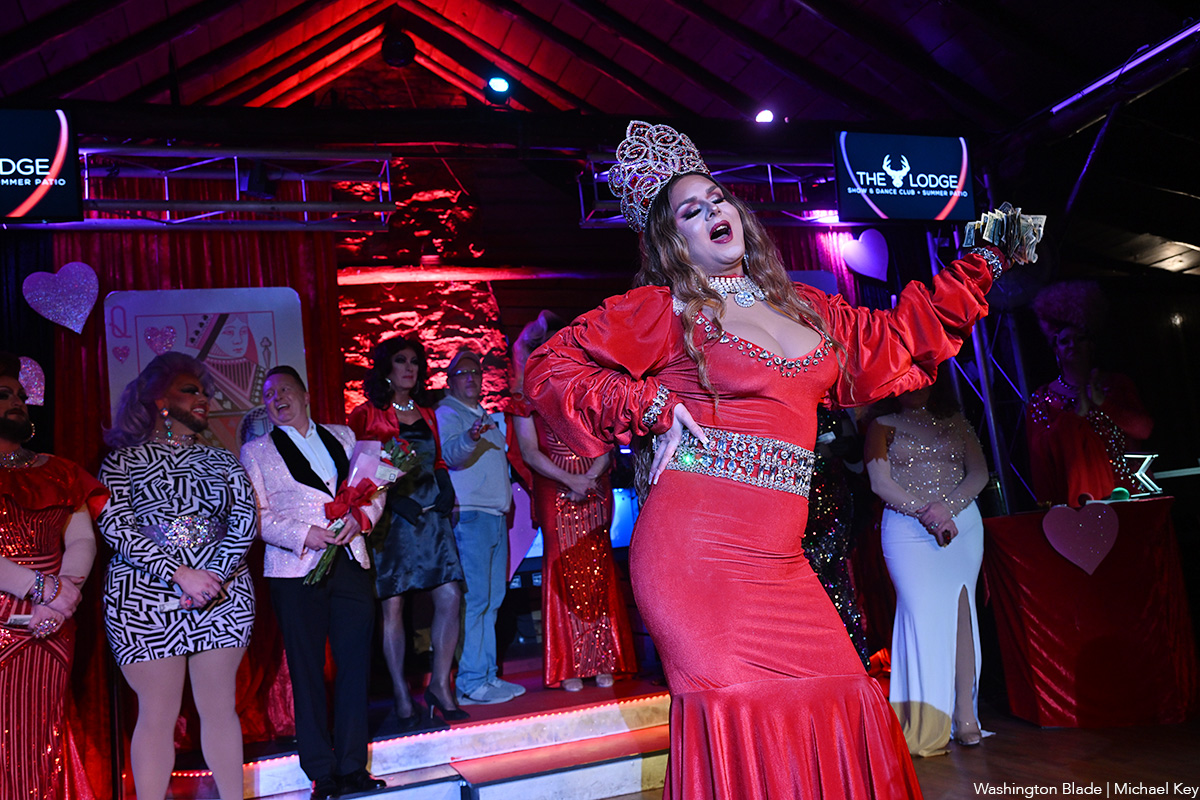
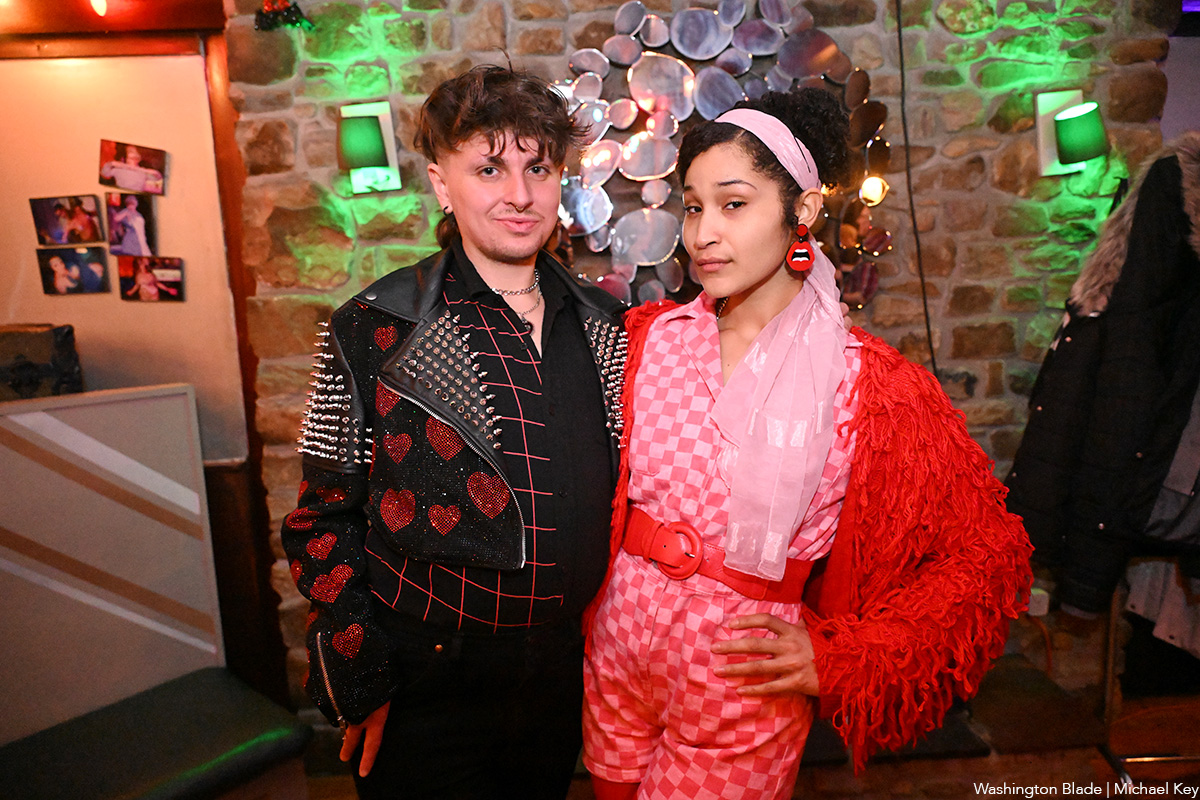
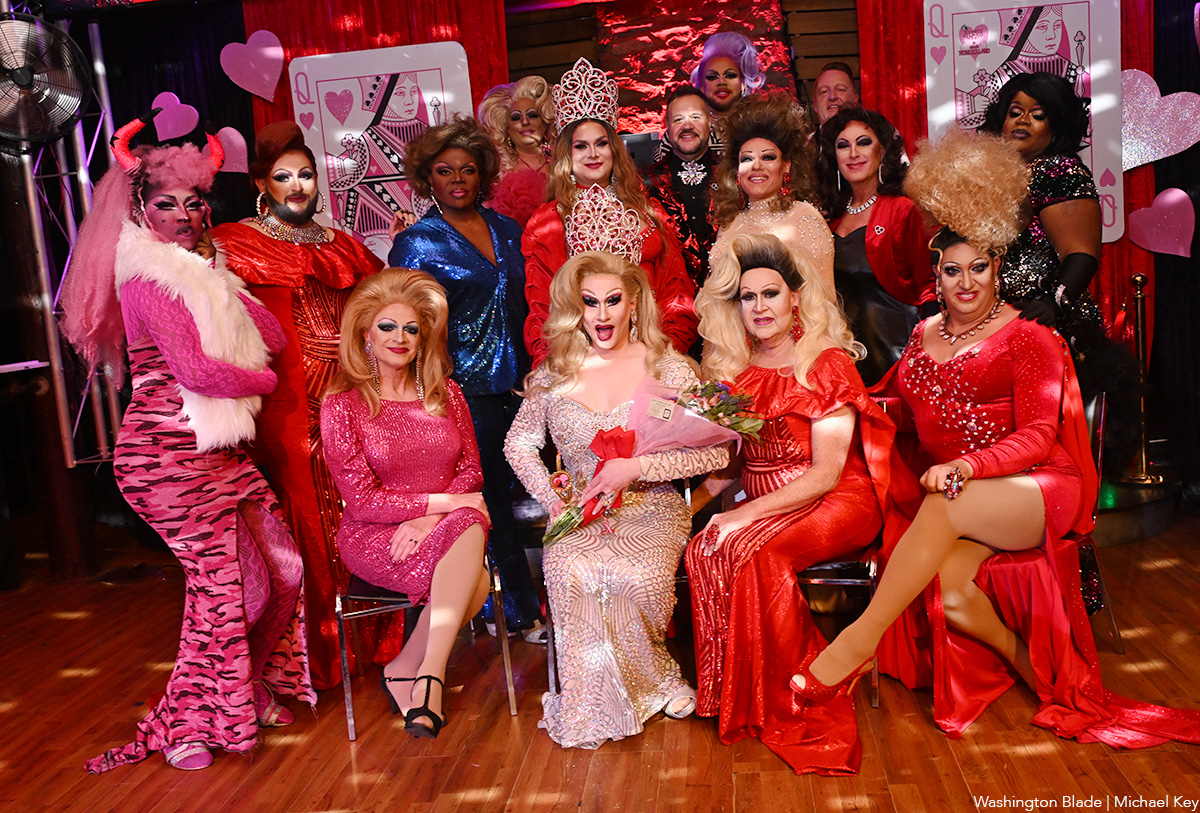
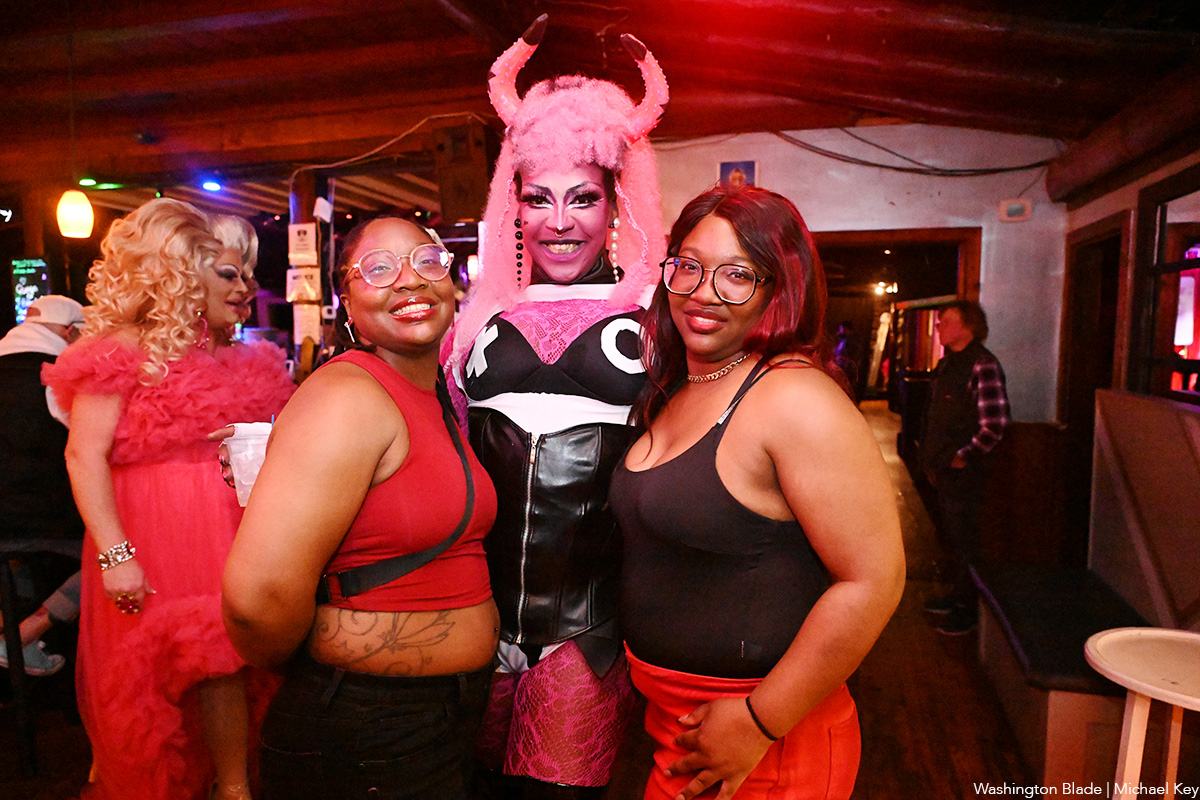
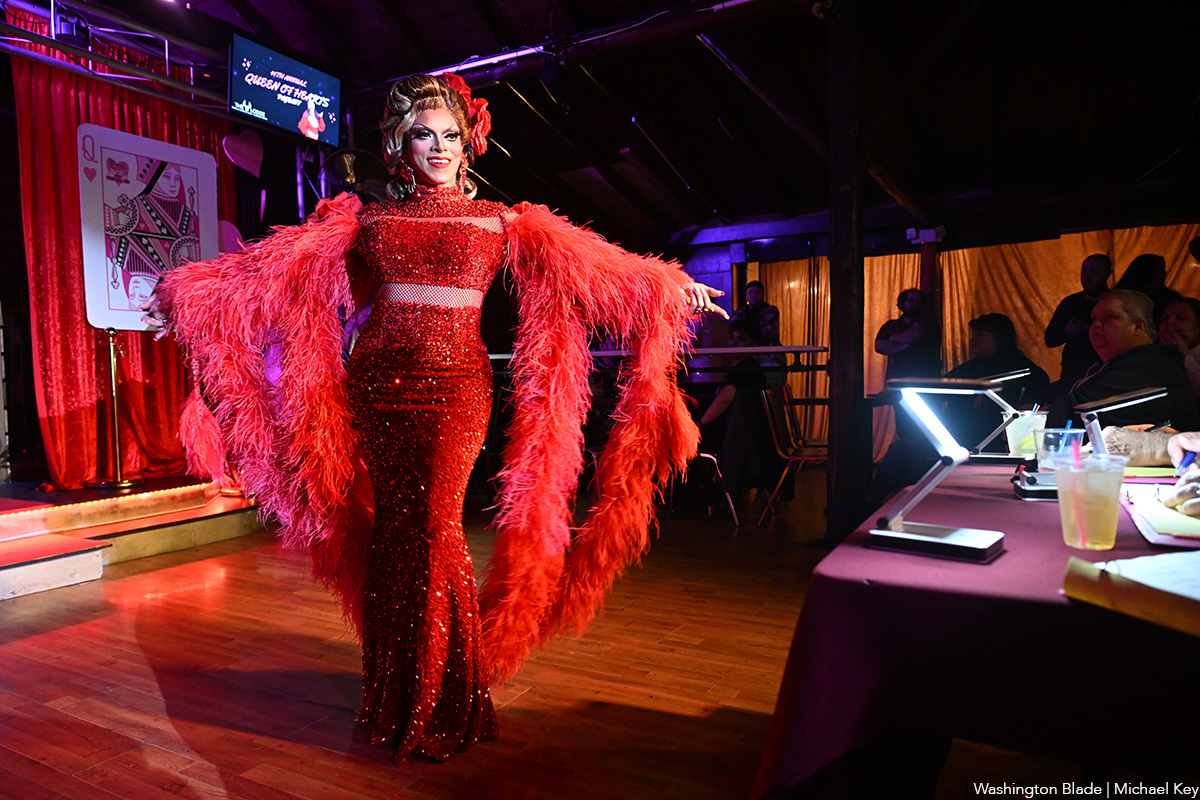
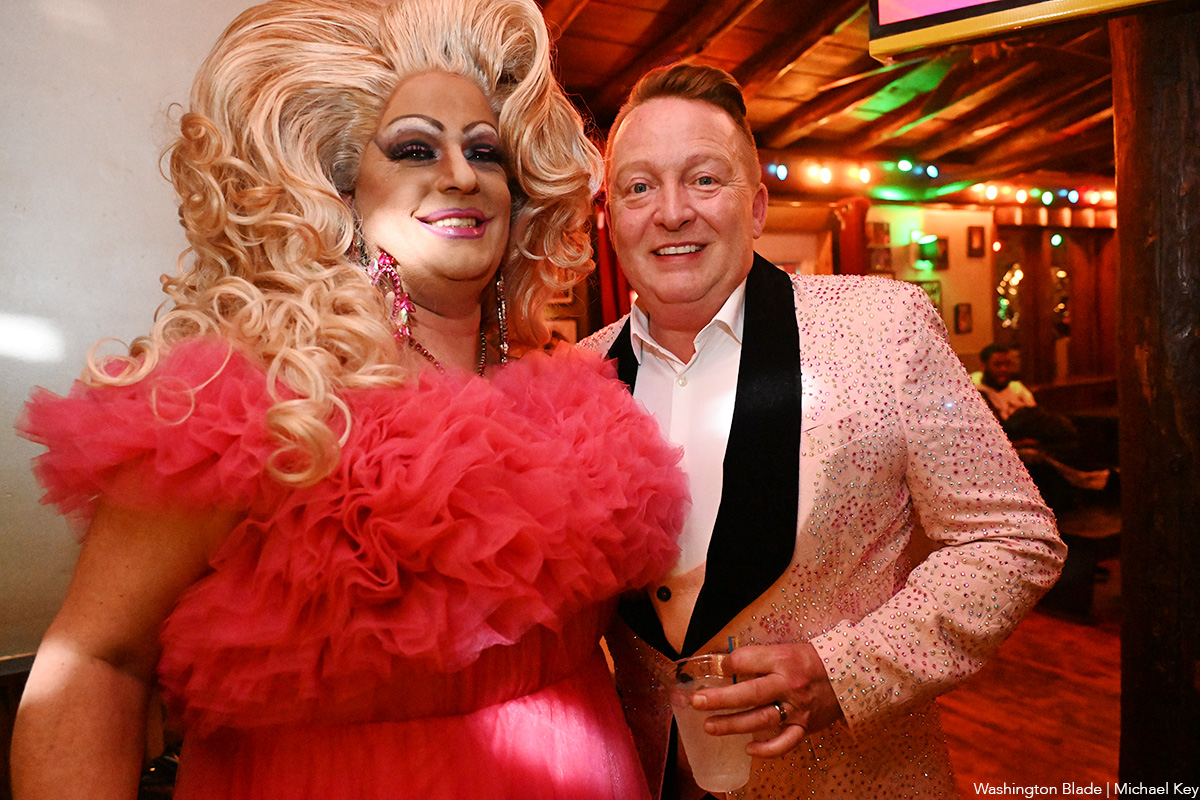
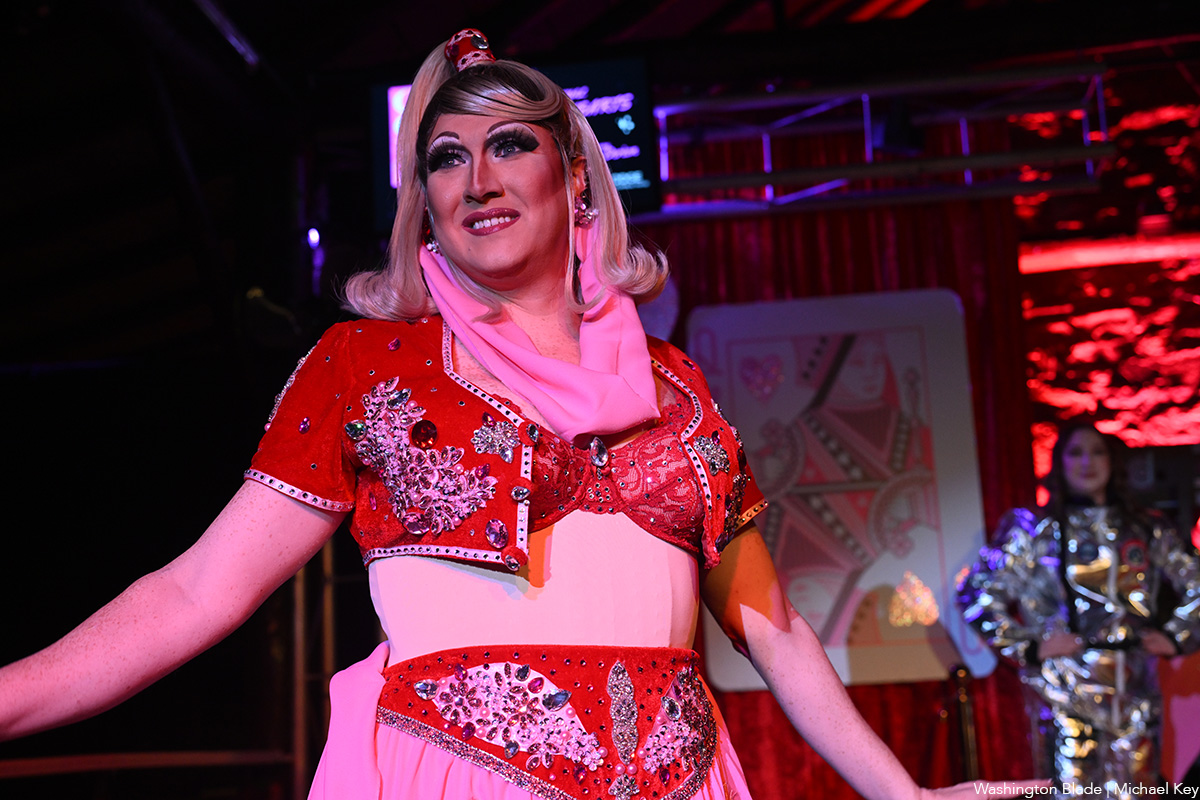
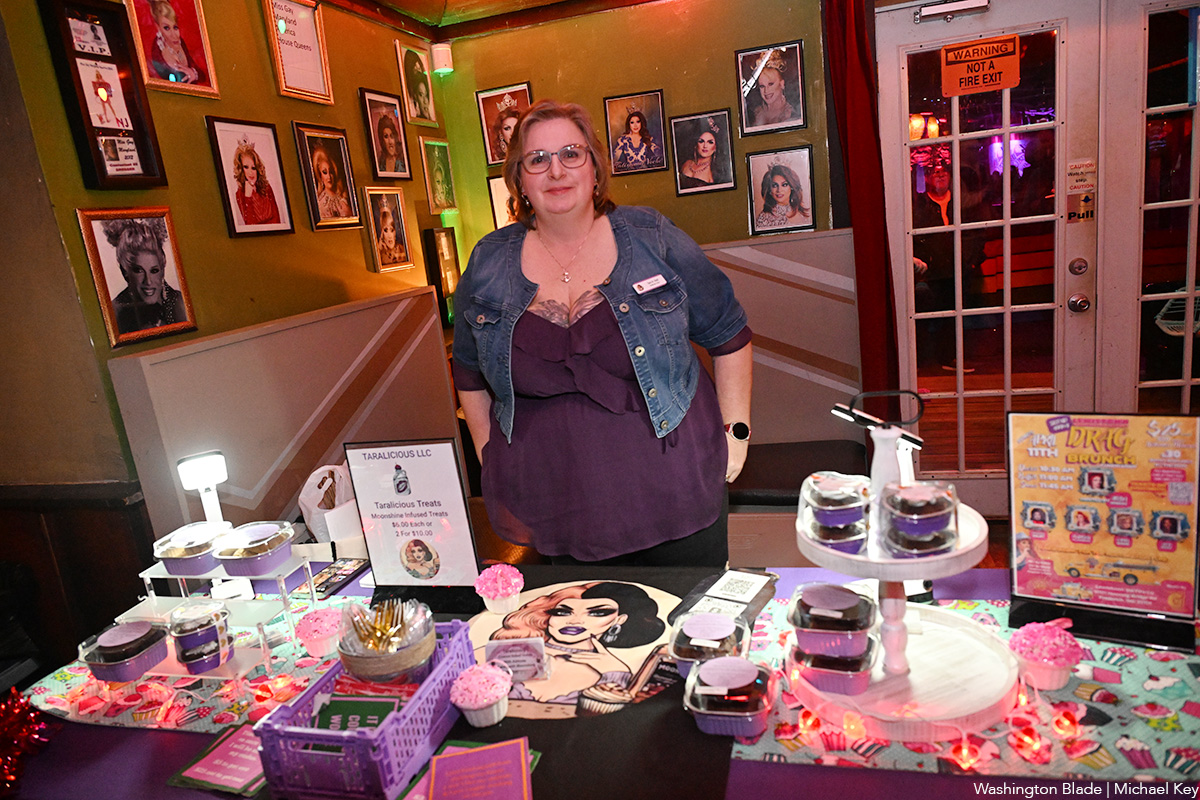
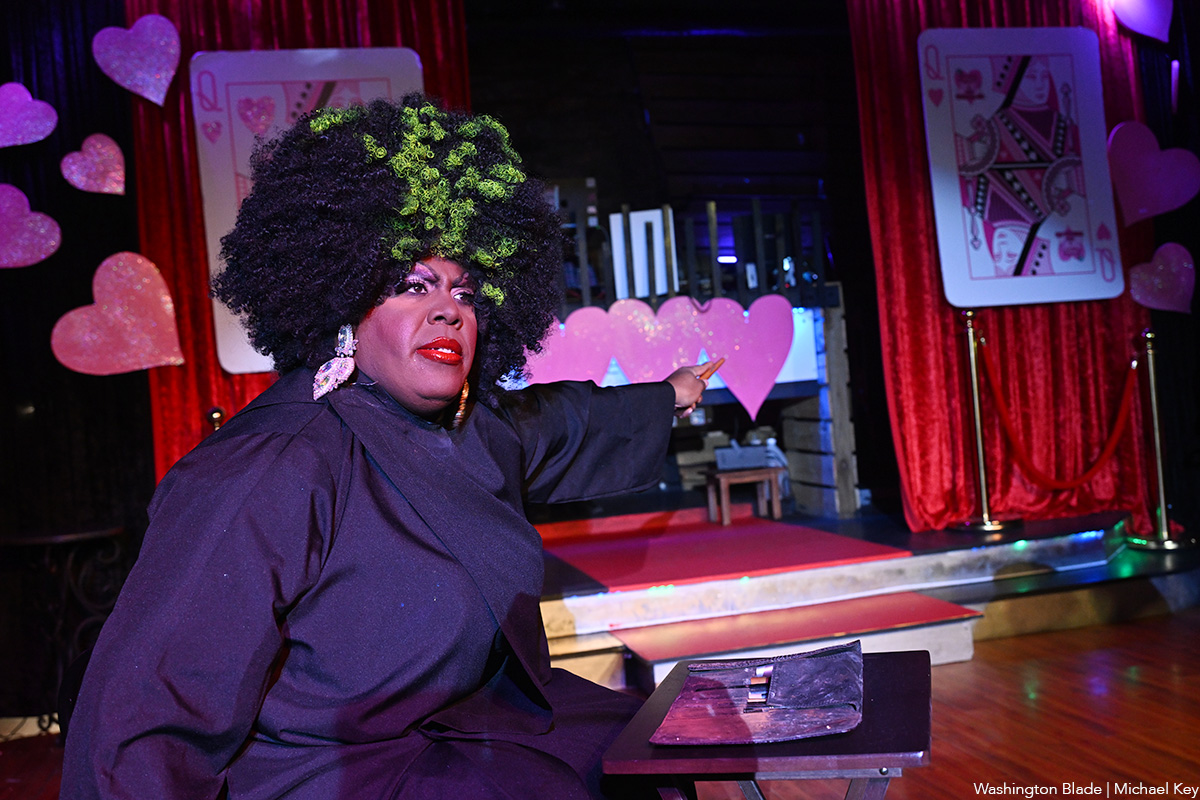
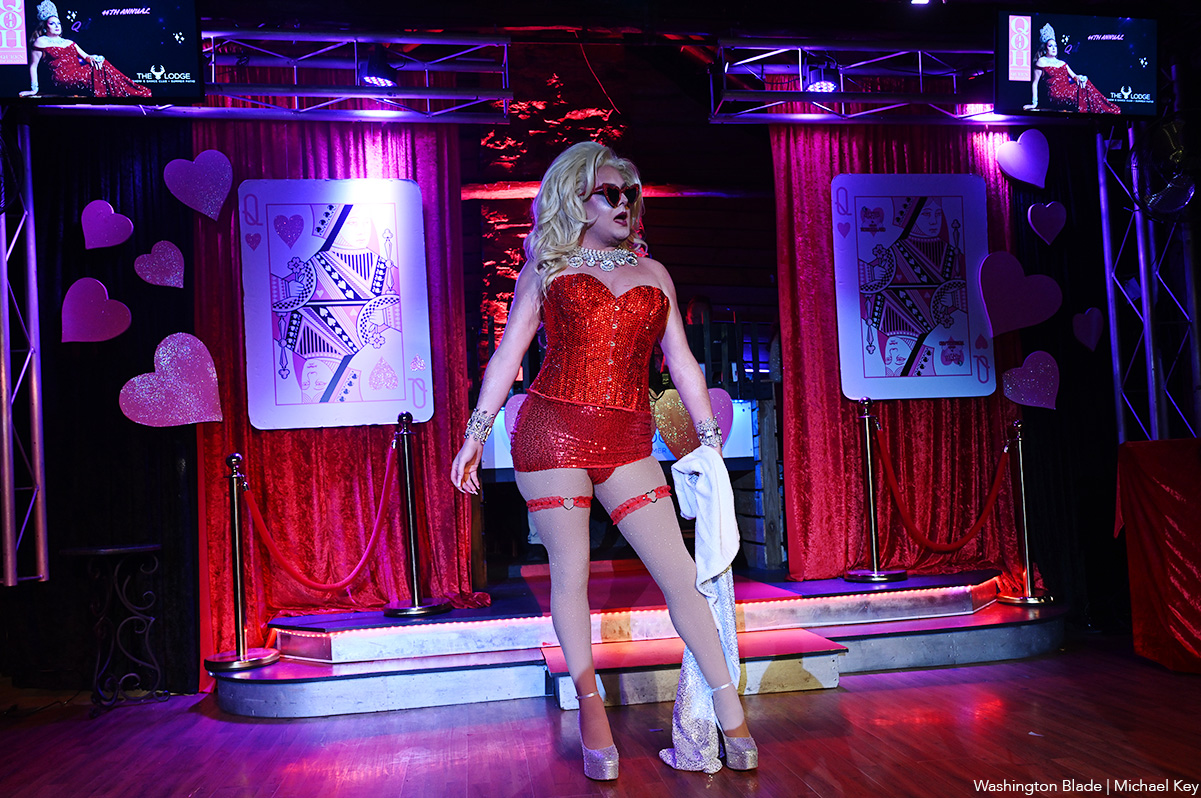
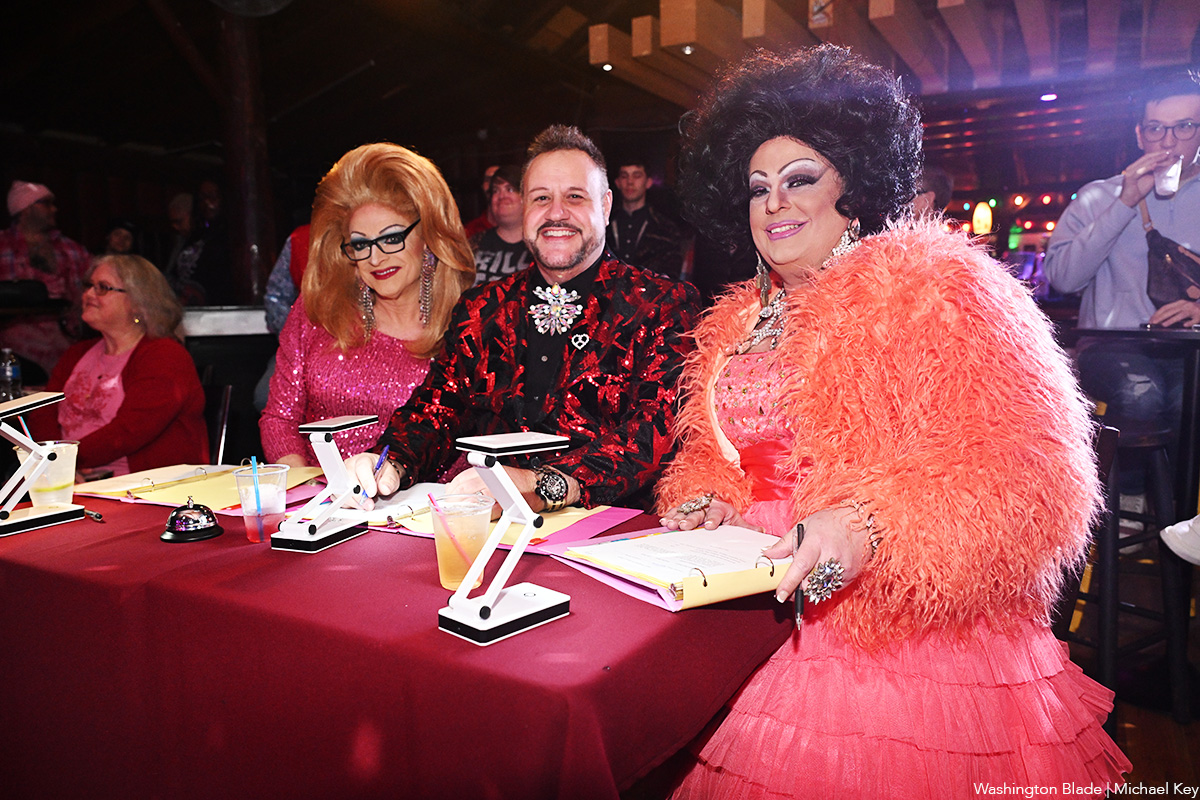
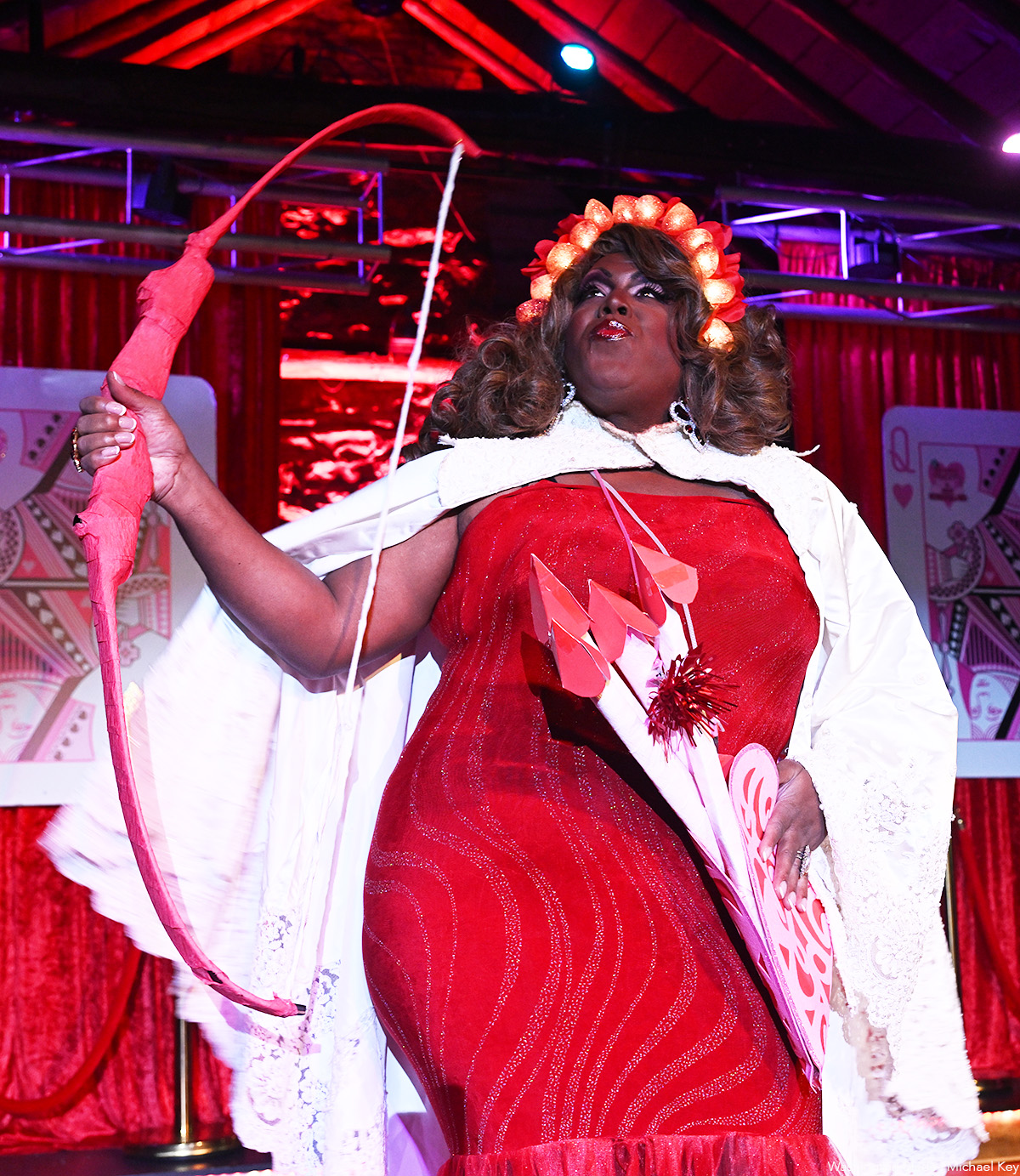
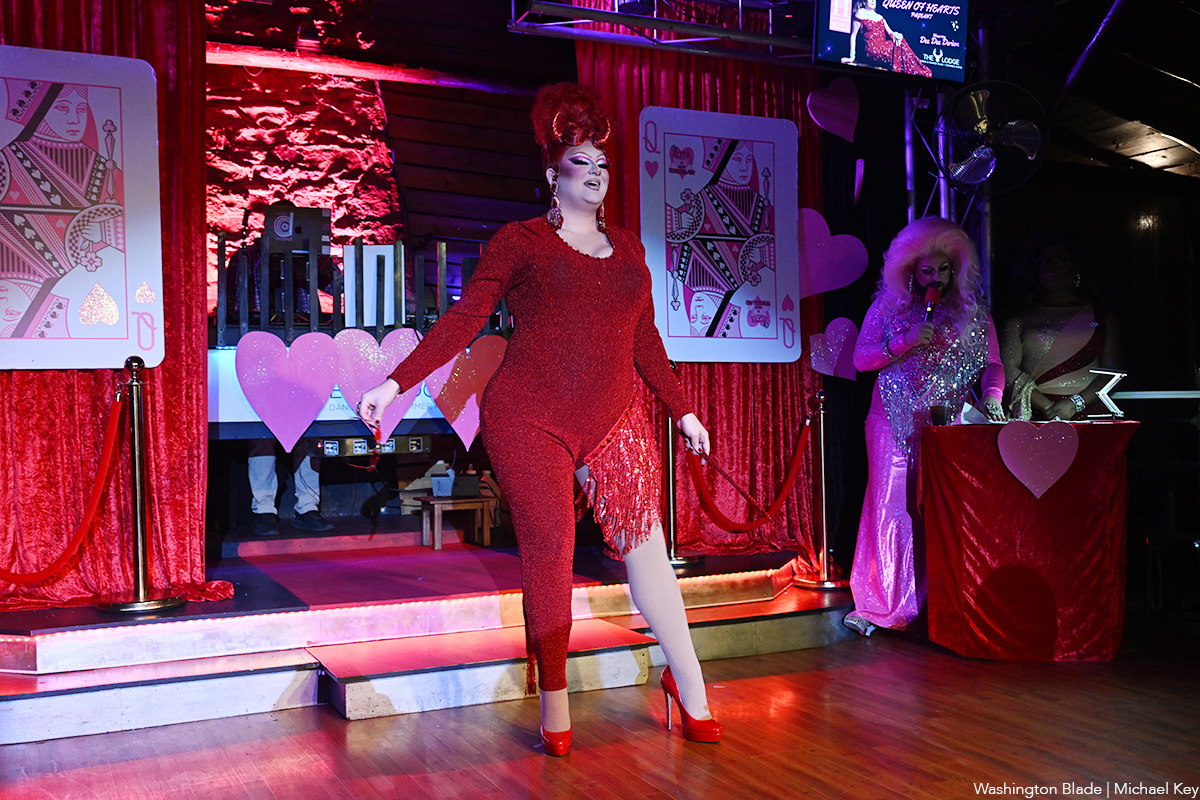
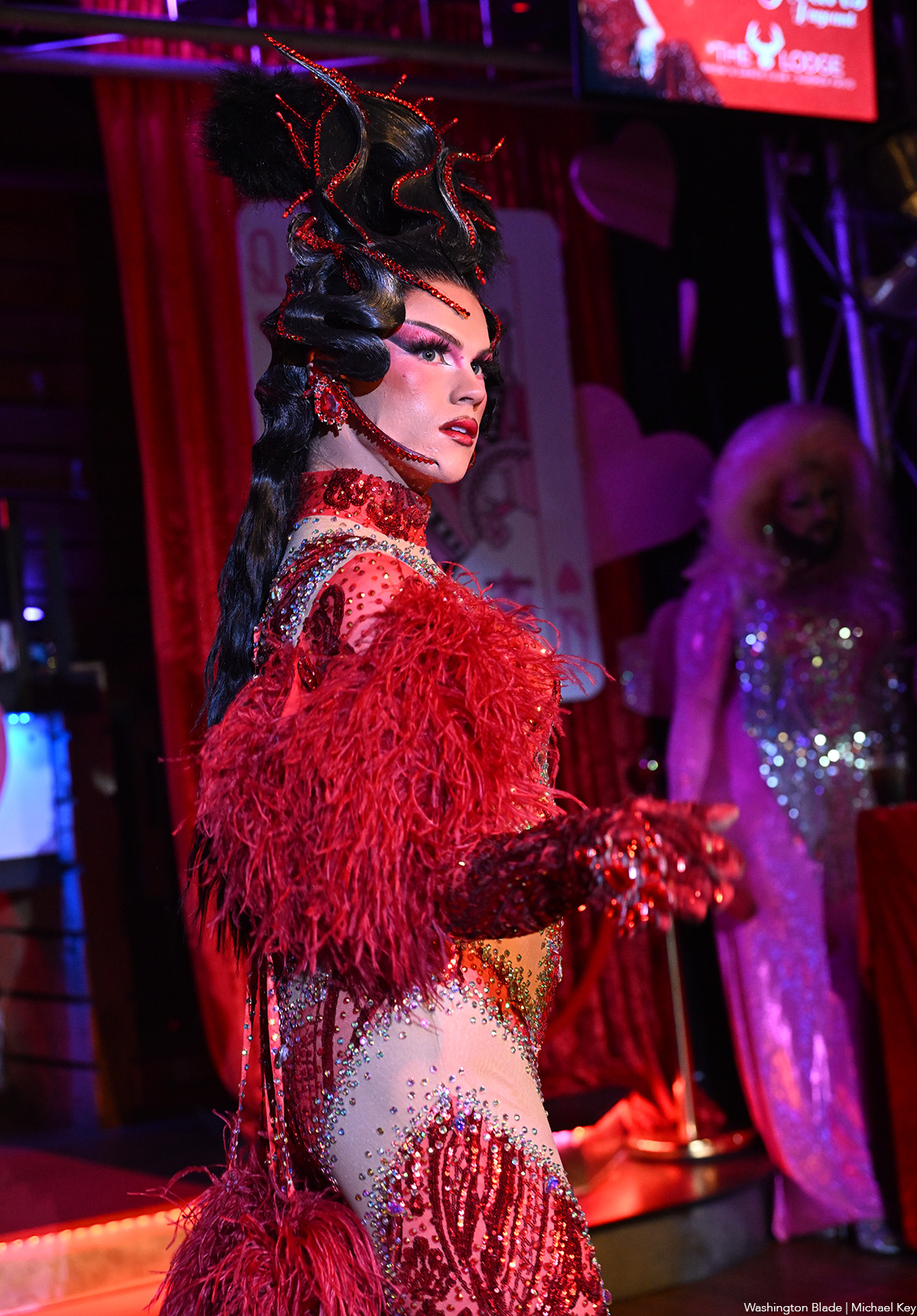
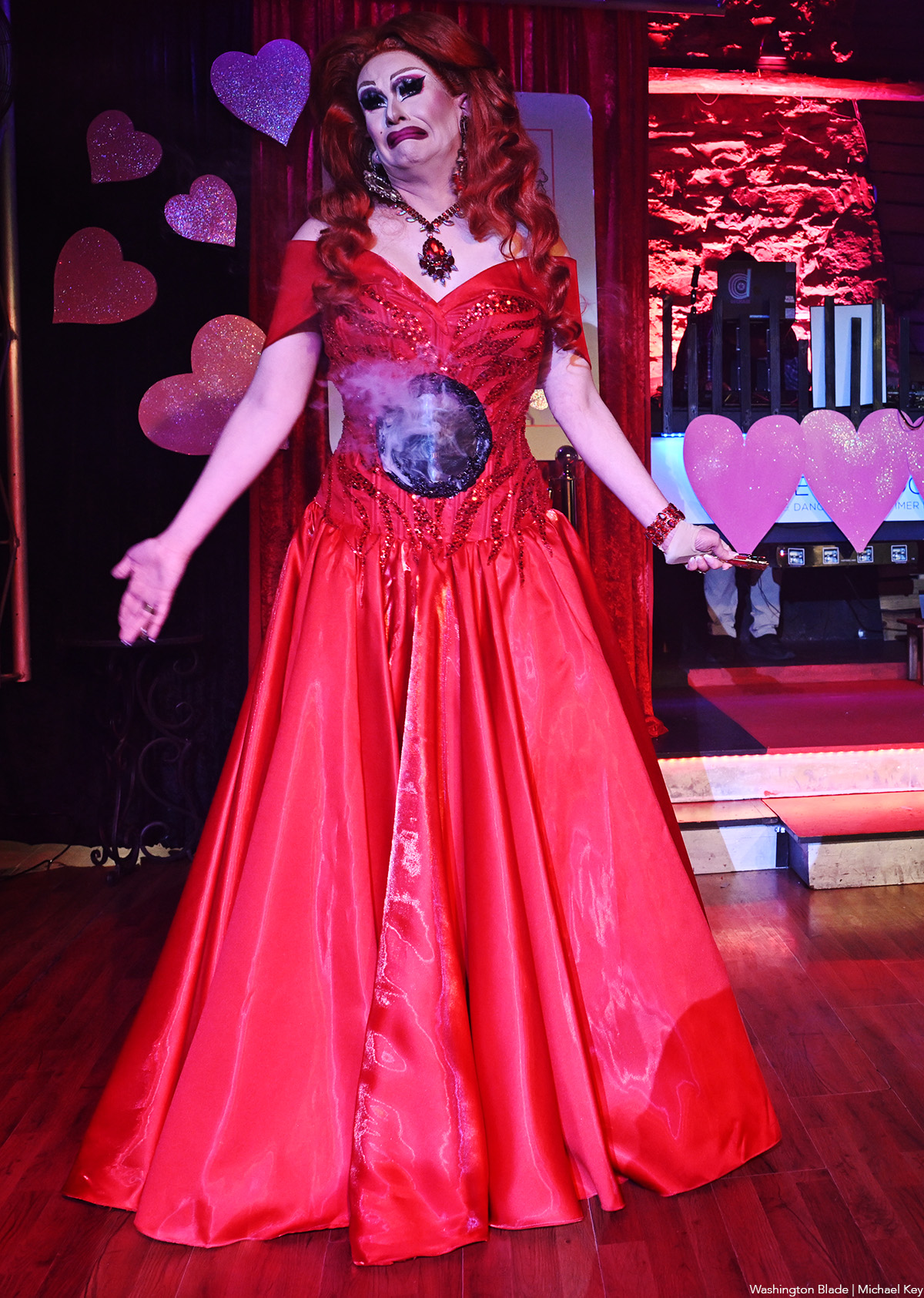
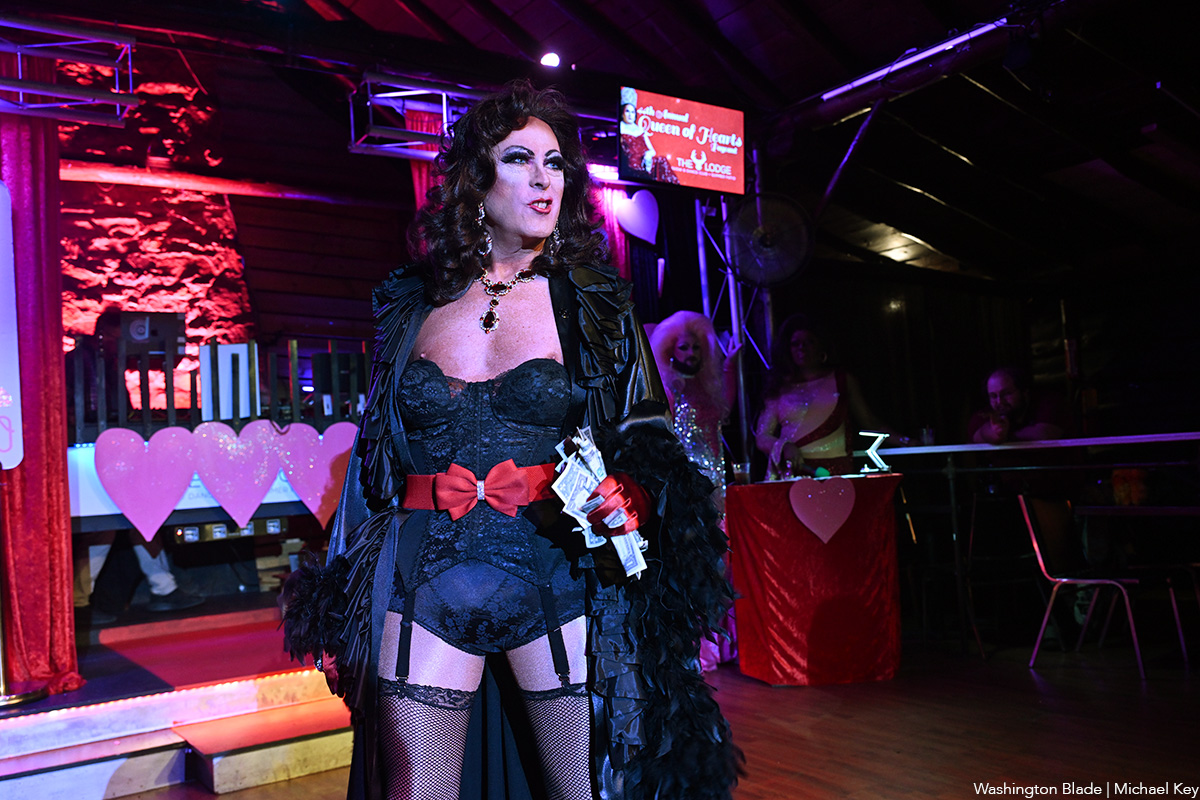
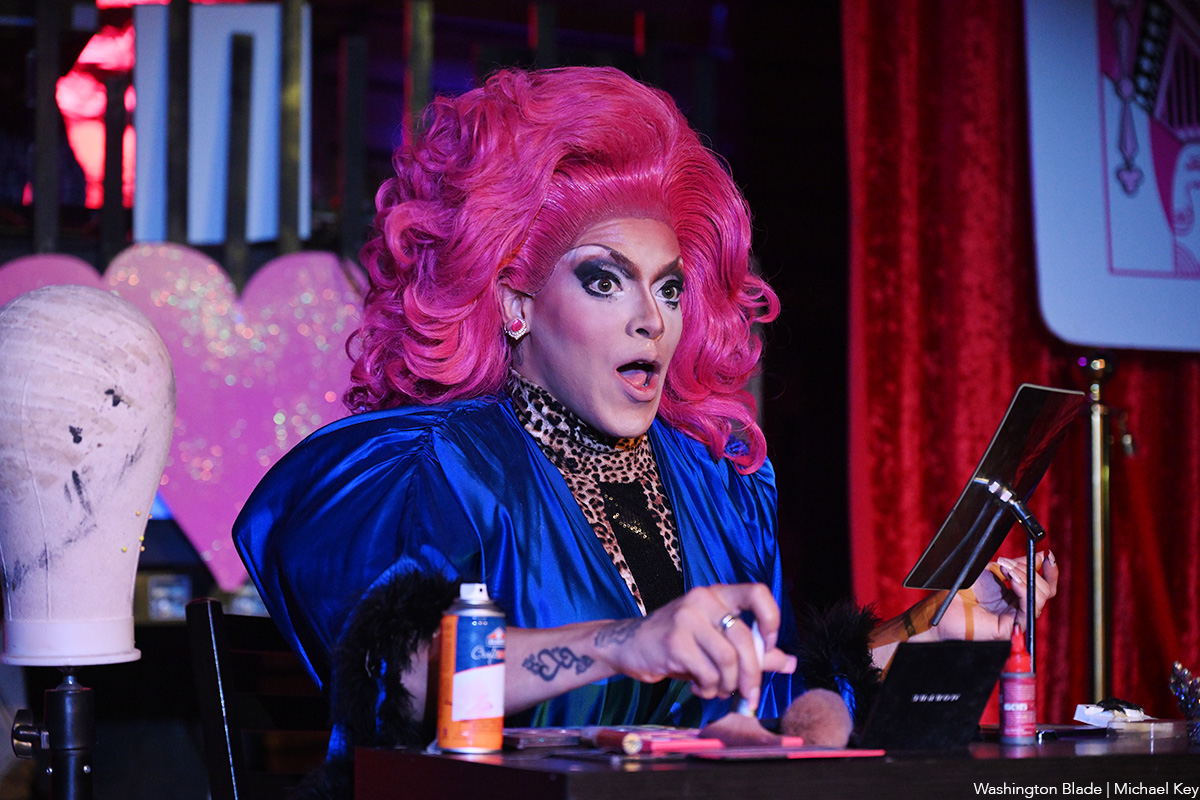
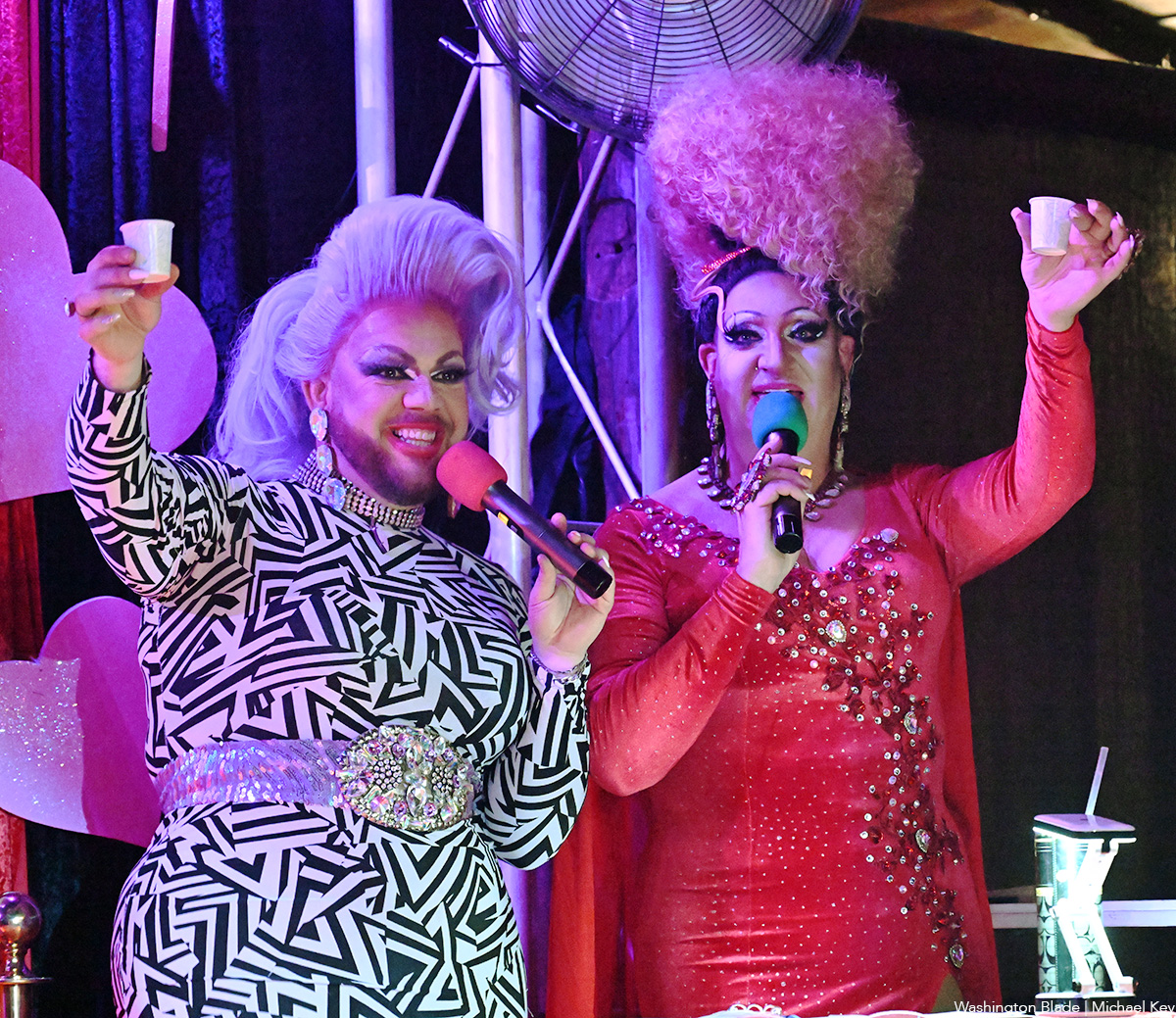
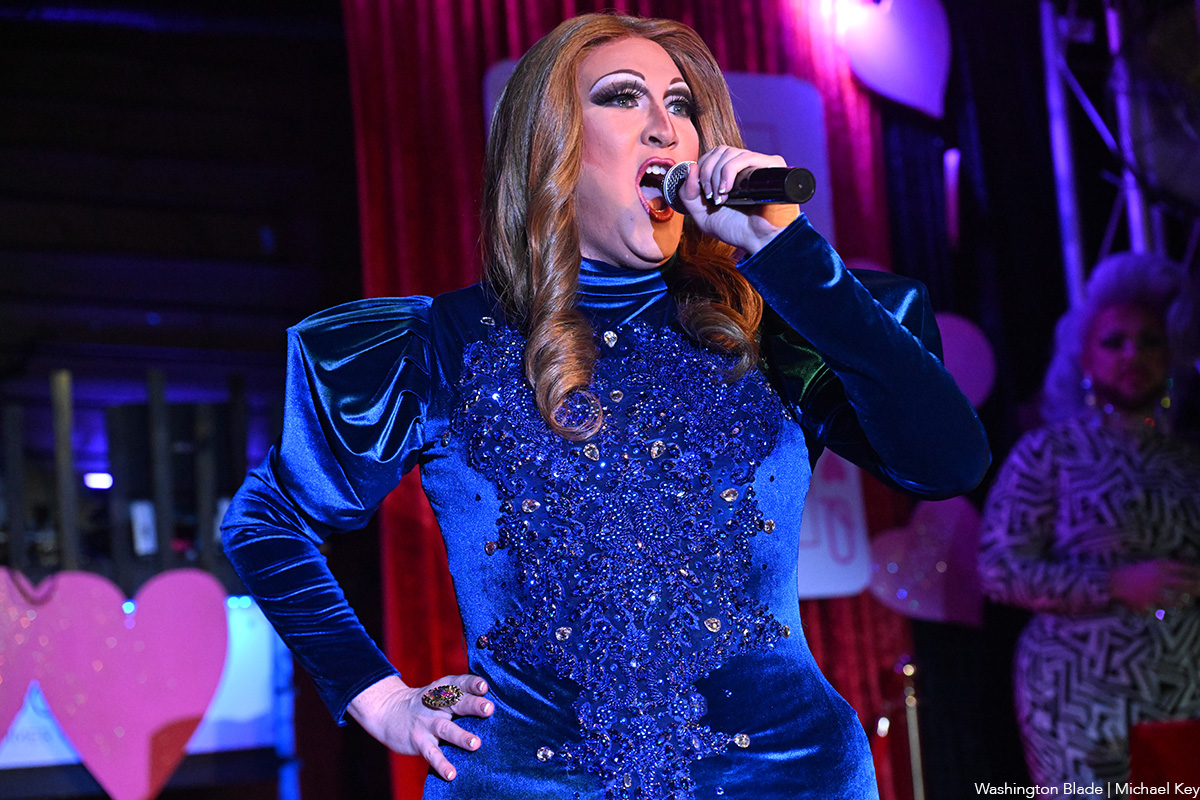
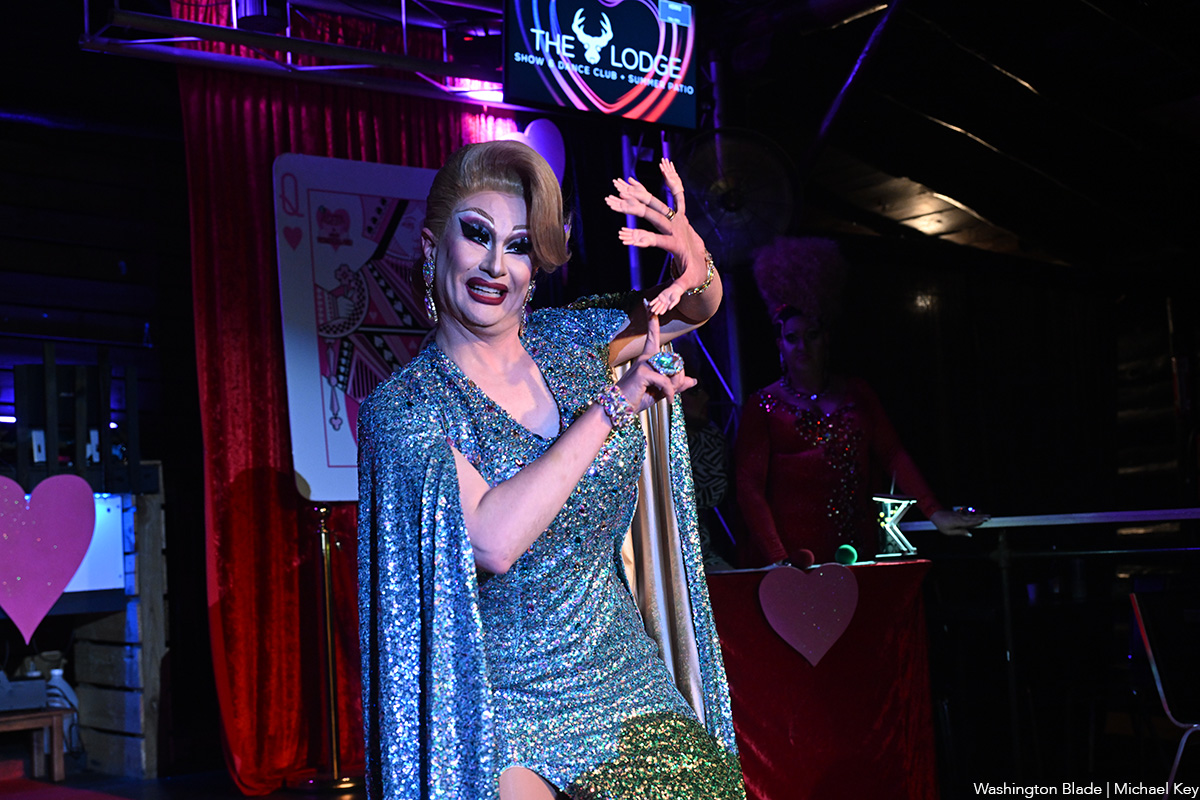
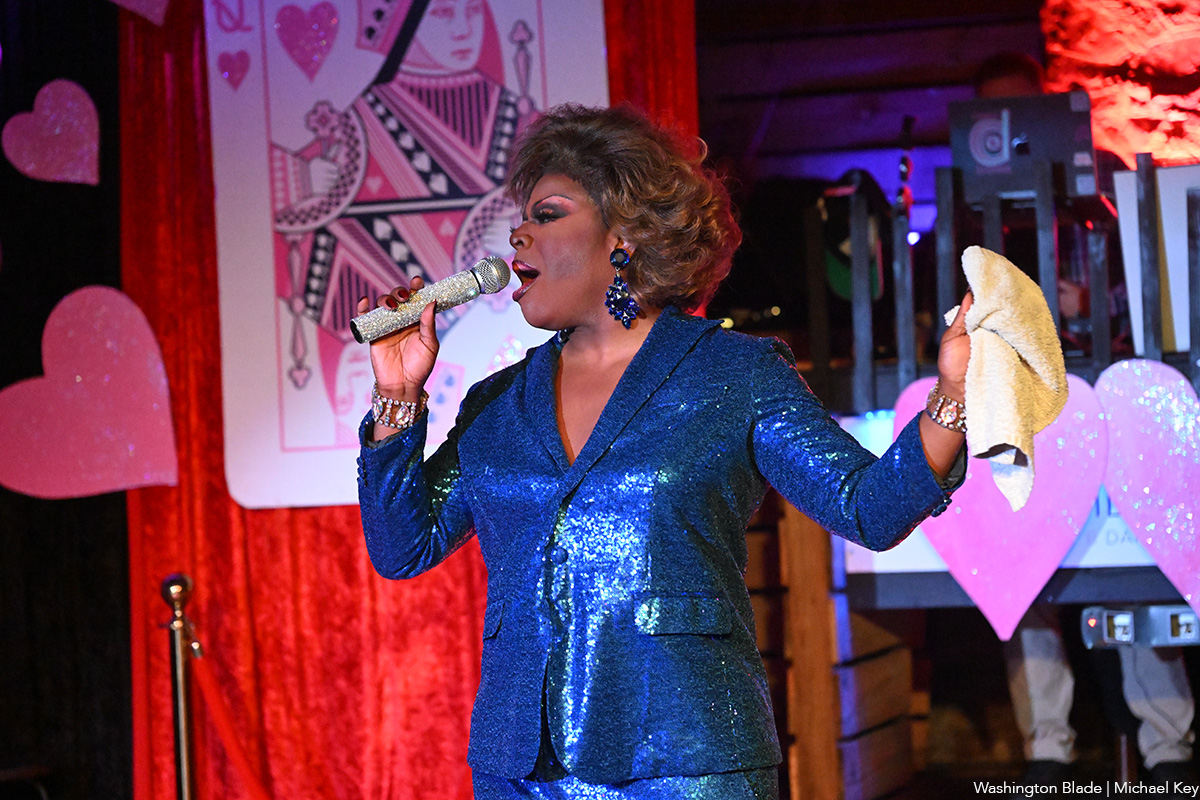
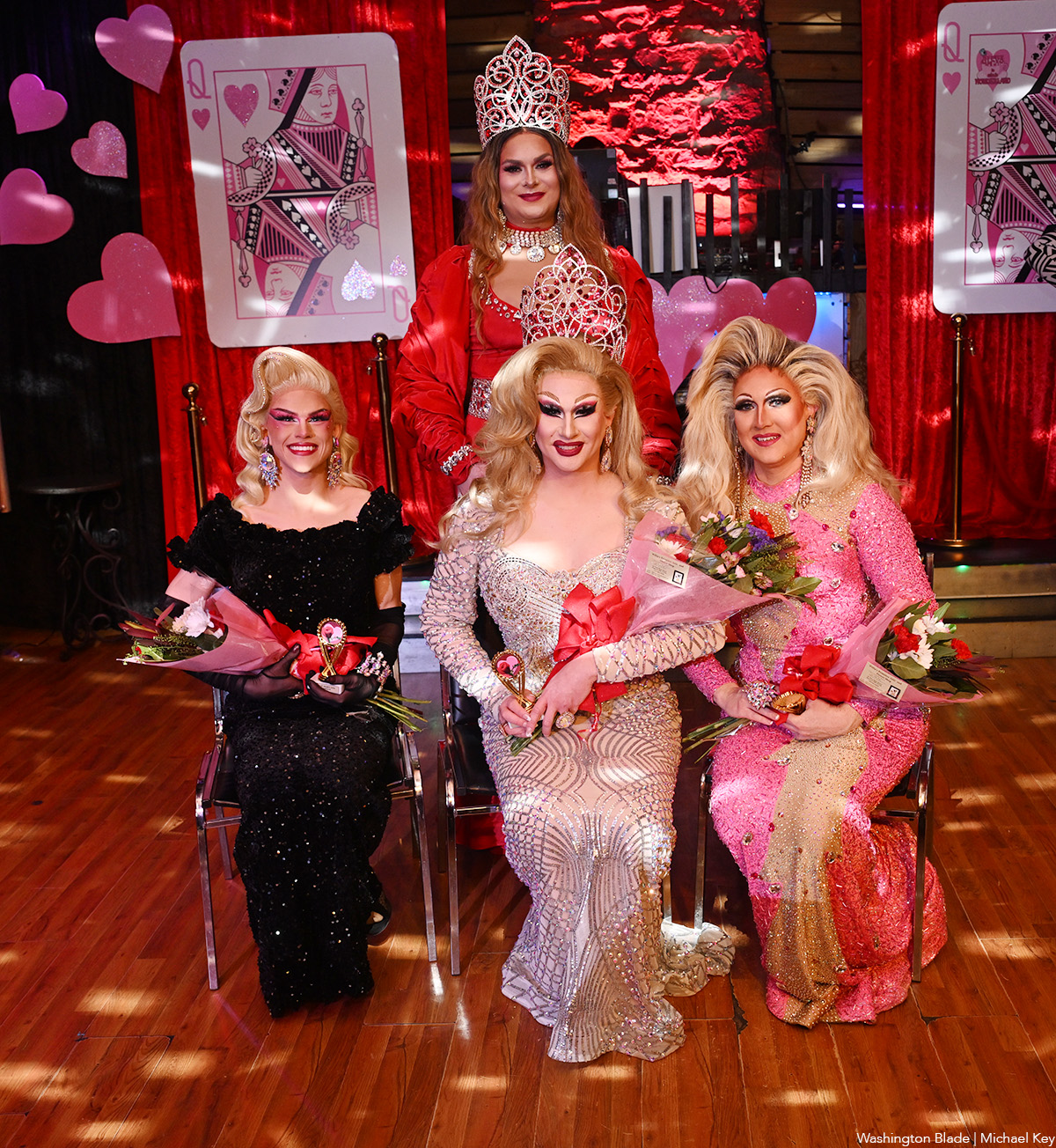
View on Threads
-

 Mexico5 days ago
Mexico5 days agoUS Embassy in Mexico issues shelter in place order for Puerto Vallarta
-

 Real Estate5 days ago
Real Estate5 days ago2026: prices, pace, and winter weather
-

 Theater5 days ago
Theater5 days agoJosé Zayas brings ‘The House of Bernarda Alba’ to GALA Hispanic Theatre
-

 Netherlands4 days ago
Netherlands4 days agoRob Jetten becomes first gay Dutch prime minister

